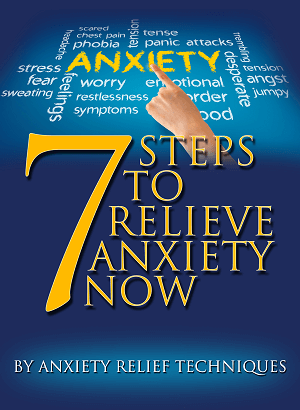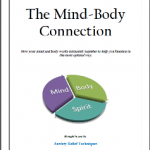Do You Take Depression and Anxiety Medications?
You may be taking depression or anxiety medications that are designed to eliminate your symptoms…but do they? It is not uncommon for these medications to actually cause the same symptoms that they should be eliminating! It sounds incredible but unfortunately, it is true. In fact, this is what happens with some common medications like Celexa and Zoloft.

Common Depression and Anxiety Medications
For many people medication proves to be either a short-term solution for depression or part of a long-term treatment program. Depression and anxiety are like any health condition that needs treatment.
Medications for Depression
A few decades ago there were limited medications to treat these issues, but now there are many choices when it comes to medications. They fall into some general categories.
- Selective Serotonin Reuptake Inhibitors (SSRIs)
SSRIs are newer medications used to treat depression. They work by regulating the amount of serotonin in the brain. Serotonin is a chemical that regulates mood as well as other process of the body.
Some examples include Prozac, Zoloft, Paxil, and Celexa.

Subscribe to Receive This Free Guide!
Receive my newsletter with my own anxiety relief tips and instant access to this eBook as a gift! I've learned how to manage my own anxiety issues...and I share what I do in my newsletter! I hope you'll join me!
We take your privacy seriously and we do not spam! You can unsubscribe at anytime! See our privacy policy here.
- Serotonin and Norepinephrine Reuptake Inhibitors (SNRIs)
These are also a new class of medication used to treat depression. They help to regulate both serotonin and norepinephrine in the brain.
Examples include: Cymbalta, Effexor, and Remeron.
- Tricyclic Antidepressants (TCAs)
TCAs are drugs first used to treat depression but aren’t as common today. They work to regulate norepinephrine and serotonin. However, they have more side effects than more modern counterparts.
Some brand names include: Elavil, Norpramin and Sinequan.
- Monoamine oxidase inhibitors (MAOIs)
MAOIs are also some of the first drugs used to treat depression. They work by increasing serotonin and norepinephrine in the brain. These drugs aren’t used very commonly because of the strict diet required.
There are many foods which interact with MAOIs so it’s important to avoid them. This makes MAOIs a difficult medication to adhere to. People are more likely to be prescribed with this class of drug if others don’t succeed.
Some MAOIs include: Emsam, Nardil, Marplan, and Parnate.
Anxiety Medications
Anxiety is often treated using antidepressants. These can help you to get relief from your symptoms over time, but if you’re having symptoms that require quick relief, you may be prescribed benzodiazepines.
These drugs work faster to help treat panic attacks. Some brands you may have heard of include Xanax, Ativan, and Klonopin.
Beta blockers may also be used to help decrease some of the physical feelings of anxiety. For example, if you have trouble with your heart racing, sweating, or trembling you might be prescribed this for a short period of time.
Beyond Medications
Treatment for depression and anxiety can also be treated with counseling. In fact, most professionals agree the best course of action is often the combination of medications with therapy to make necessary changes.
I personally, prefer natural anxiety supplements, however I know many people can’t, that’s why I have listed all these medications often prescribed.
So Can Medications Help?
Sometime during the 1960s, medical researchers discovered that anti-depressants provided anxiety relief. However, the researchers also made another discovery — that the same medications can also trigger the onset of anxiety and depression!
Their initial reaction was one of incredulity. How can a drug meant to cure depression cause depression instead? It’s really hard to fathom but no matter how many experiments and studies they did, the conclusion was always the same. The reason for this is because people simply have different genetic dispositions so a remedy that may work perfectly for one person may deliver the opposite results for someone else.
Another good method for explaining this phenomenon is used by medical school professors…and it goes something like this…
- If you are driving a car and you press the gas pedal, you would expect to move forward, right? It’s the common assumption but what if the gear was in reverse? You would get the opposite result and the car would move backward instead. It’s the same with depression and anxiety medications. People who take them expect to get relief from the symptoms but if their brain is wired differently from someone else, there is really no way of predicting what kind of results the medications would produce.
- In another driving analogy, you can tell exactly what kind of results you can get if you know not only the settings of the car but also the conditions of the road that you are driving on. In the same way, you can only predict the outcome of taking depression and anxiety medications if you know exactly what the person’s past experiences are, what he is feeling, and so on.
If you have been taking depression and anxiety medications yet the symptoms just seem to be getting worse, then the phenomenon just explained may be what’s happening to you. In this case, you can switch to a different medication or find natural anxiety and depression supplements to relieve your symptoms, which are “naturally” safer and proven to be effective.
You may also like to try natural remedies for depression.
Affiliate Disclosure
My website contains affiliate links, which means if you purchase any products mentioned in my articles, I may receive a commission. If you do, thank you!







I have a whole bunch of issues anxiety in the morning is the worst . I also take levothyroxin. The dose keeps changing every 3 mon so far . I go to counseling too. I feel like I will never be better. I’m taking Wellbutrin for the last week or so and I do feel some relief. It just awaking early and not knowing what to do when I’m sweaty heart beating throwing up/ gagging but can’t eat . Help please suggestions
Hi Julie,
I’m glad to hear you go to counseling. I hope you like and relate really well with your counselor. That is so important. As you know I am not a doctor, however I am happy to share my thoughts.
The first thing I would be looking at is why in the mornings is it the worst? (Yes, I know many do, but I would be looking at why you specifically.) What is the trigger. If you don’t know, I would be making sure I had happy things around me when I woke up.
For example, photos of people you love…but ones that don’t trigger anxiety…even if you ‘love’ them! Set some soft ‘happy’ music to play in the background. Perhaps set a timer on your waking if you have an alarm. Have an oil burner ready to light with some calming essential oil.
Being sweaty, racing heart and throwing up…I know how that feels…and when I feel like that I stop, stand still, tilt my head back and smile. It was hard to start with…but now, my mind is ready. I tell myself I am happy and alive and that I love myself.
That may all sound weird…but it makes my heart start to relax and I can breath deeply! I would love you to try. You won’t find it in expert books…but it works for me…and I would love to think maybe one day it would for you.
Please tell yourself you will get better. If you say you feel you won’t…you won’t.
I say to myself probably a thousand times a day…thank you for my healing…thank you for being so loving…thank you for being you.
You have to love yourself and you will overcome your anxiety one small step at a time. Don’t ever give up. It is a long road…but you can make the journey happen, with one small step, day by day. 🙂